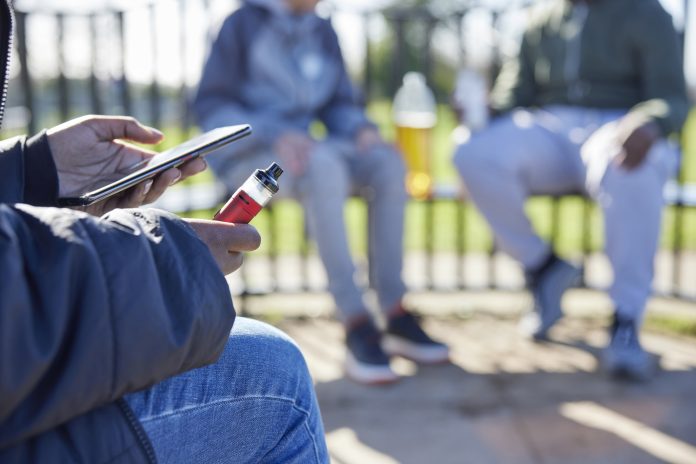The World Health Organisation has issued a call against the alarming rise in e-cigarette use, particularly in young children and teenagers
Urgent action is being called to control e-cigarettes, which are not only proving ineffective as acting as an alternative to smoking but also harming health.
E-cigarettes were originally introduced as a tool to help smokers quit but have become largely targeted towards young children. 88 countries still have no minimum age for purchasing e-cigarettes, and 74 countries lack any regulations for the product.
The World Health Organisation reported that Dr Tedros Adhanom Ghebreyesus, WHO Director-General, warns, “Kids are being recruited and trapped at an early age to use e-cigarettes and may get hooked to nicotine.”
What are the side effects of E-cigarettes?
E-cigarettes with nicotine are highly addictive and create severe health risks, including the generation of toxic substances known to cause cancer and increase the risk of heart and lung disorders.
The impact on brain development in young users and adverse effects on fetal development in pregnant women further highlight the urgency of this issue.
Dr. Ruediger Krech, WHO Director for Health Promotion, highlights the tactics used to target children: “E-cigarettes target children through social media and influencers, with at least 16,000 flavors. Some of these products use cartoon characters and have sleek designs, which appeal to the younger generation.
“Some of these products use cartoon characters and have sleek designs, which appeal to the younger generation.”
The demand for E-cigarettes? Why is ee-cigarette use in young people so popular?
Recent data revealed an alarming increase in e-cigarette use in young people, with rates exceeding adult use in many countries. In Canada, e-cigarette use among 16–19-year-olds has doubled between 2017–2022, while in England, the number of young users has tripled in the past three years.
The link between exposure to e-cigarette use on social media and the intention to use the product is even more concerning. Studies consistently show that young e-cigarette users are almost three times more likely to use cigarettes later in life.
How can this crisis be tackled?
To tackle this growing crisis, the WHO advocates for urgent measures, urging countries to ban the sales of e-cigarettes or implement stricter regulations. For countries permitting commercialisation, the WHO recommends banning all flavours, limiting nicotine concentration and quality, and imposing taxes.
Banning strategies should be evidence-based, part of a comprehensive tobacco control approach, and subject to rigorous monitoring and evaluation.
The governments using e-cigarettes as an alternative to smoking should regulate these products as medicines, controlling access conditions and requiring marketing authorisation.
88 countries still have no minimum age for purchasing e-cigarettes
The influence of e-cigarettes
The WHO warns against the tobacco industry’s vested interest in promoting e-cigarettes as harm-reduction tools while profiting from the sale of both traditional and electronic cigarettes. The industry’s influence on policy-making must be curbed to protect public health.
Global action is crucial to prevent the uptake of e-cigarettes, given the mounting evidence of their use by children and the associated health risks. Action must be taken to shield young people from nicotine addiction and safeguard public health.











